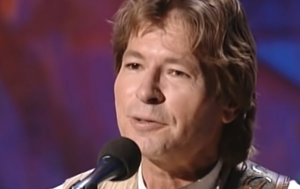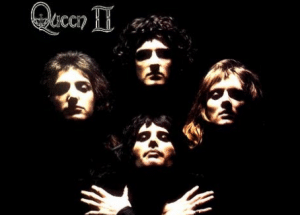Pink Floyd Fans Are Mixed On This Song That Parodied The Bible

via Pink Floyd / Youtube
In 1977, rock and roll legends Pink Floyd released one of progressive rock’s most enduring albums, Animals. This sprawling conceptual masterpiece was a musical reflection of George Orwell’s Animal Farm.
While the book was Orwell’s critique of Joseph Stalin’s dictatorship by portraying overworked animals overthrowing a farm, Pink Floyd’s powerful opus contemplates the socio-political unrest of 1970s Britain.
Do you know who came up with the cover design concept for the Animals album? pic.twitter.com/WkJ1HQGeSb
— Pink Floyd (@pinkfloyd) January 24, 2019
While most Pink Floyd fans cite “Dogs” as the best track in Animals, some fans would argue and choose “Sheep”, one of the album’s most memorable and controversial songs. Apart from it being a social commentary on herd mentality, it was also a biblical parody.
Critics, as well as well-meaning fans, panned the album when it was released. The change in political weather in the following decades gave light to the truth Pink Floyd was preaching, and Animals has since gained favorable views and rightfully placed amongst the band’s best work.
“Raving and Drooling”
“Sheep” was more of a reinvention of the Bible’s most popular passages, rather than a parody of their meanings. It creatively echoes “religion is the opiate of the masses”, a popular quote of German-born political theorist Karl Marx.
Its original name, ”Raving and Drooling”, was even more reflective of what the band’s primary songwriter wanted to illustrate. During their 1974 tours, the song was one of the three new songs Pink Floyd would play before performing The Dark Side of the Moon in its entirety.
The other two were eventually titled “You’ve Got to Be Crazy” (later renamed “Dogs”), and the heartbreaking ode to band co-founder and former member Syd Barrett, “Shine On You Crazy Diamond”. The renaming arrangement was to reflect the concept of Animals.
In the performances of “Raving and Drooling,” a recording of DJ Jimmy Young from BBC Radio was manipulated and played in a random, fragmented manner. This unconventional approach was Roger Waters’ interpretation of a person “raving and drooling” or displaying signs of insanity. Notably, the lyrics of the song during this phase were distinct from those that would ultimately become the lyrics of “Sheep.”
“Sheep” as a potent biblical allegory
The most obvious biblical allusions in the song’s narrative were initiated by the line: “I’ve looked over Jordan, and I have seen / Things are not what they seem.” In the scriptures, the Jordan “Sheep” alludes was the river the enslaved Israelites used as the escape route to the Promised Land. Exodus 3 depicts this place as a “land flowing with milk and honey,” a thriving realm promising a greener pasture.
Within the context of the song, this reference gestures towards the escalating industrialization of Britain – a move of progress that, in truth, subjugated the laboring class and jeopardized their means of living.
A subsequent biblical reference draws from one of the most renowned verses, Psalm 23: “The Lord is my shepherd; I shall not want. He makes me lie down in green pastures. He leads me beside still waters. He restores my soul.”
Pink Floyd, of course, adeptly subverts the verse’s connotation to further illustrate the sheep’s enslavement, who remain largely oblivious to their role as walking sacrifices: “Hopelessly passing your time in the grassland away / Only dimly aware of a certain unease in the air / You better watch out / There may be dogs about”.”
Around six and half minutes into the song, Pink Floyd redoubles the stacks of subliminal messaging with a robotic, distorted voice reciting the somber reinterpretation of the psalm, complete with creepy sheep bleating in the background over a delectable serving of Waters’ basslines.
The reinterpretation says “The Lord is my shepherd, I shall not want / He makes me down to lie / Through pastures green / He leadeth me the silent waters by / With bright knives He releaseth my soul.”
The most overt and darkly humorous line was probably one of the lines that follow: “He maketh me to hang on hooks in high places / He converteth me to lamb cutlets”. Yikes.
While the lyrics undeniably hold paramount significance in conveying the song’s themes, the musicality of “Sheep” introduces an additional intricate layer. The lasting guitar riff paired with a weighty bassline hung hand heavy like the chains of subjugation clamping down on the oppressed.
The music ebbs with resonating “baa” echoes that somehow unsettlingly allude to the fate of the flock marching toward their imminent slaughter. Contrary to a direct critique of faith and religion, Pink Floyd’s utilization of biblical elements in “Sheep” is a potent metaphor for an entrenched ruling class, embodied in the song as God.
Animals is an ingenious social critique
Pink Floyd’s Animals remains an ingenious and thought-provoking political commentary that showcases the band’s prowess in blending complex musical compositions with incisive social critique.
The album was a pivotal phase in Pink Floyd’s discography, where they transitioned from the progressive rock sounds of “The Dark Side of the Moon” to a more conceptually driven approach. In Animals, the band skillfully weaves together allegorical narratives and musical arrangements to dissect the sociopolitical landscape of its time.
View this post on Instagram
Pink Floyd refrained from releasing any singles to promote Animals; instead, they relied on the In the Flesh tour to carry the album. The tour itself became a source of inspiration for their following 1979 album, The Wall, driven by Roger Waters’ distress with the audience.
The Wall would go on to become one of Pink Floyd’s best and most renowned works and one of music history’s best-selling albums of all time.












